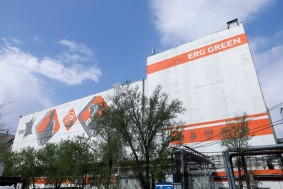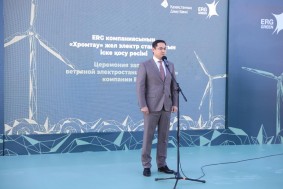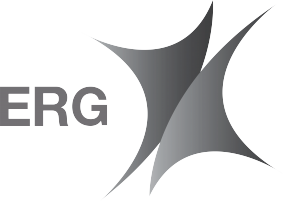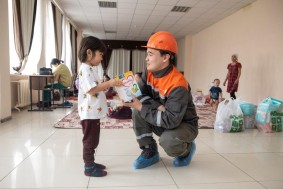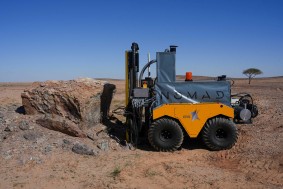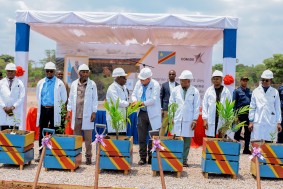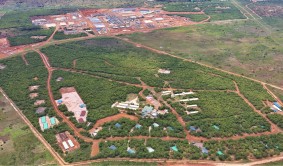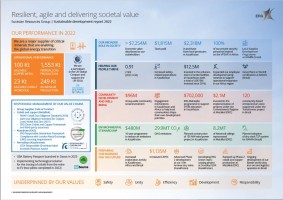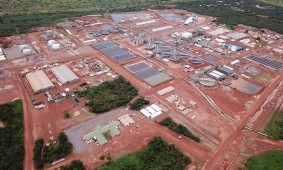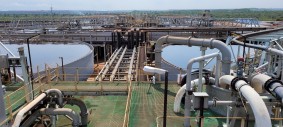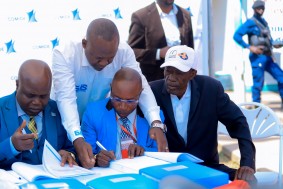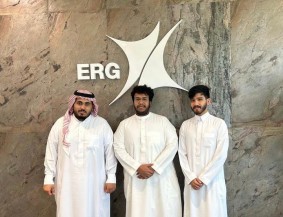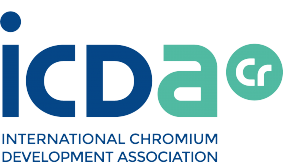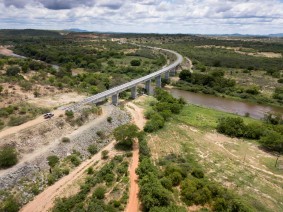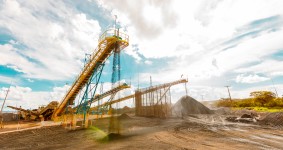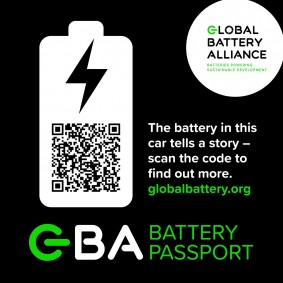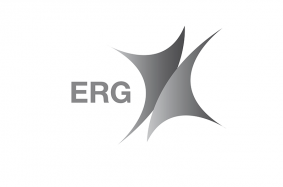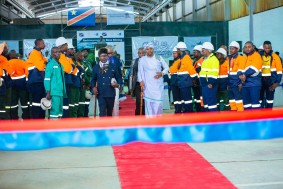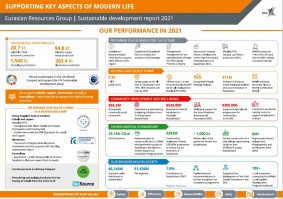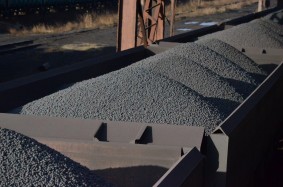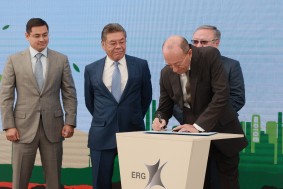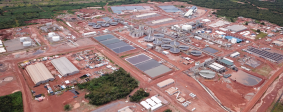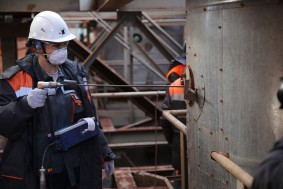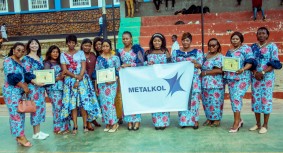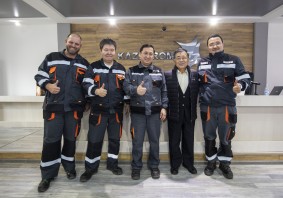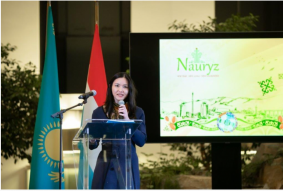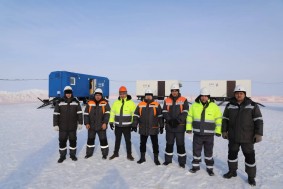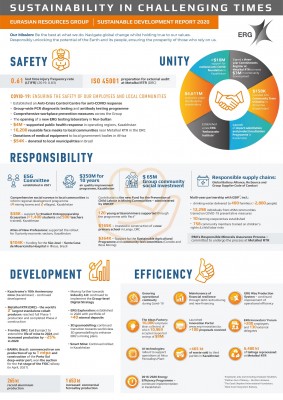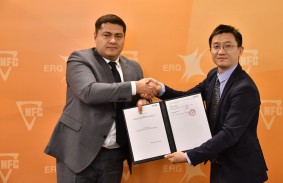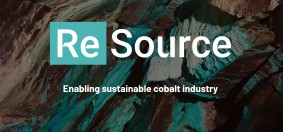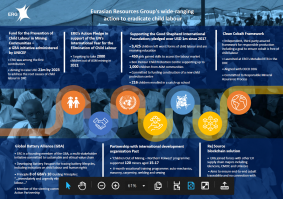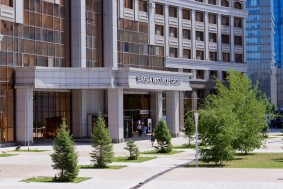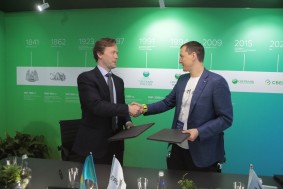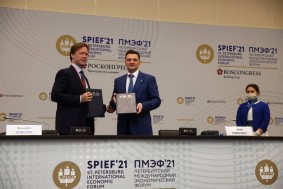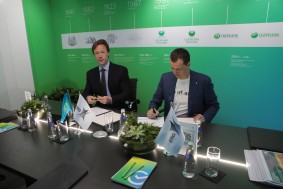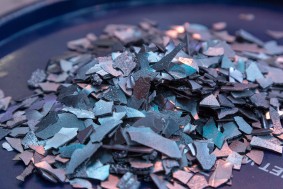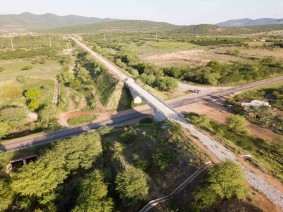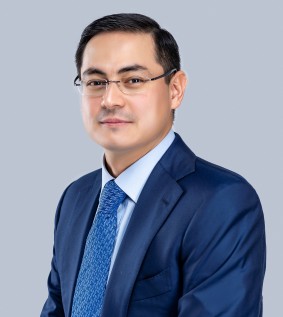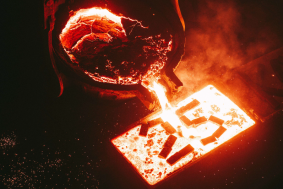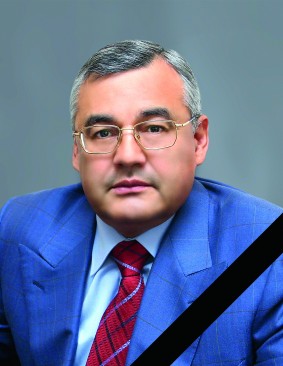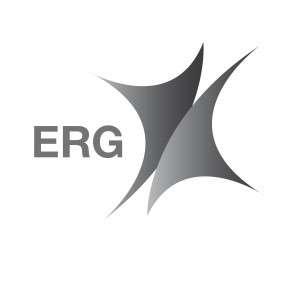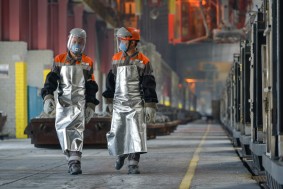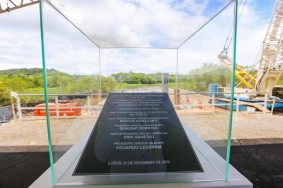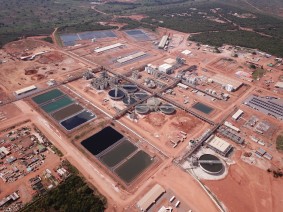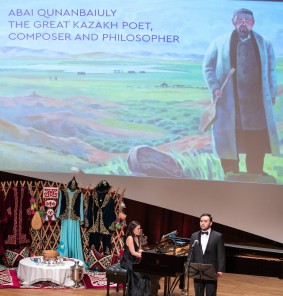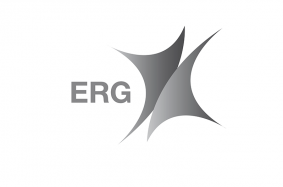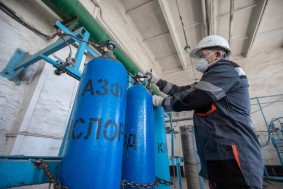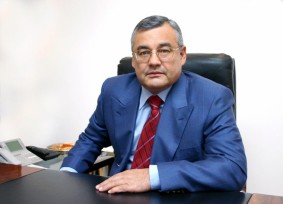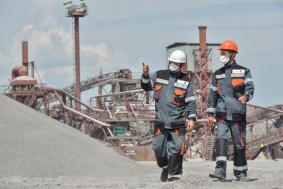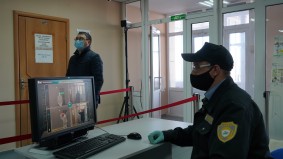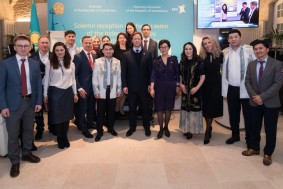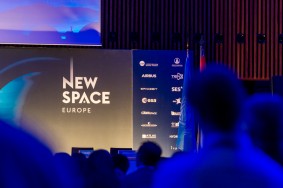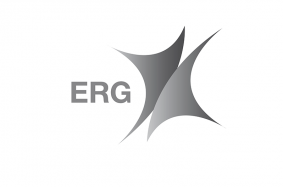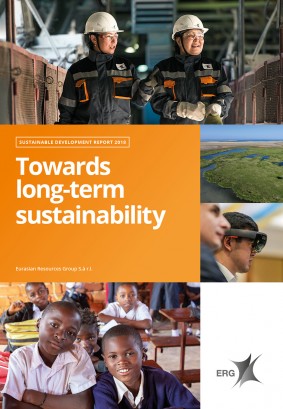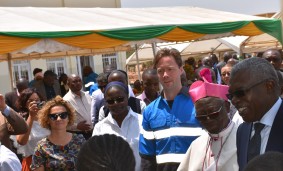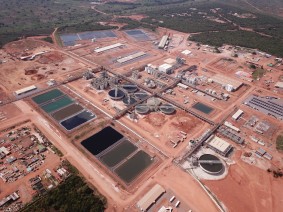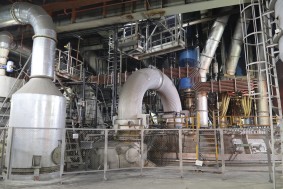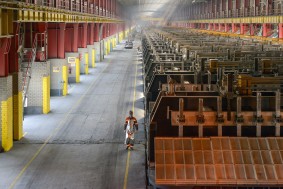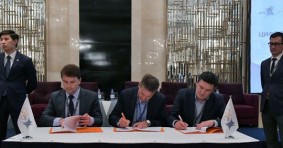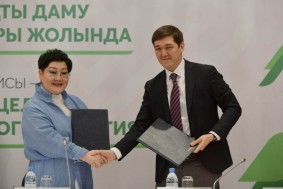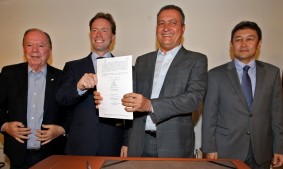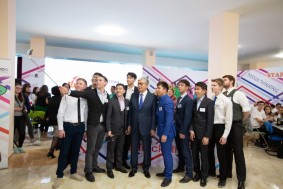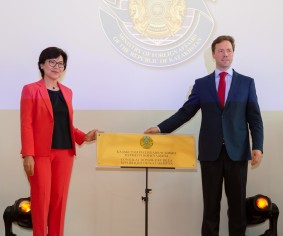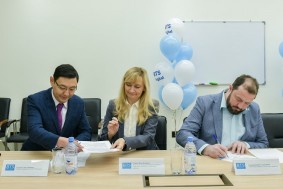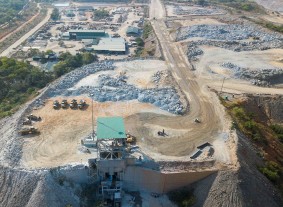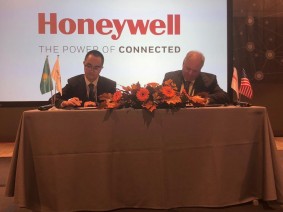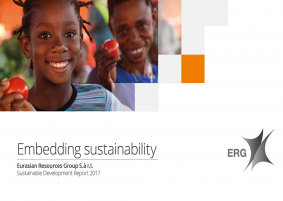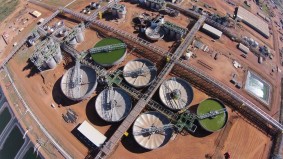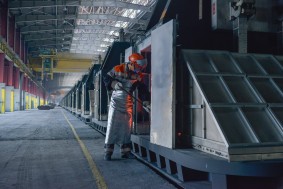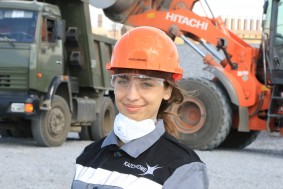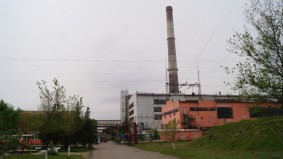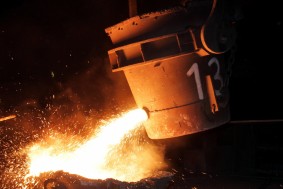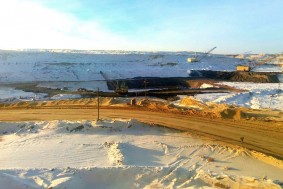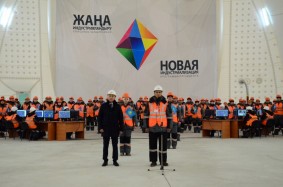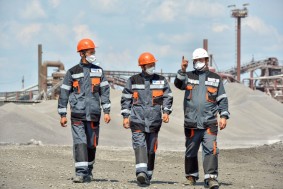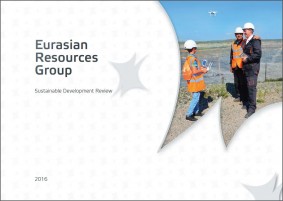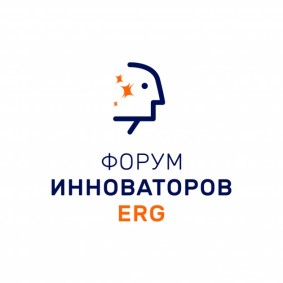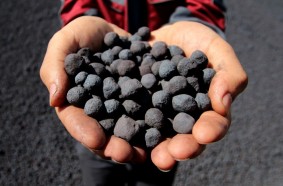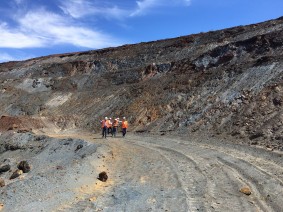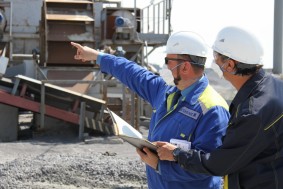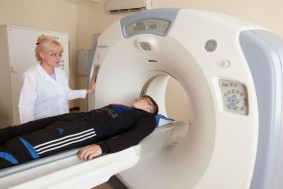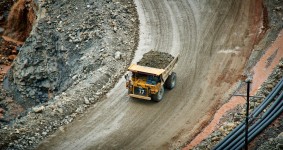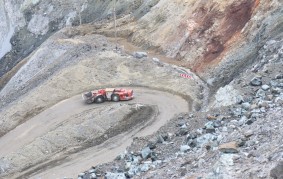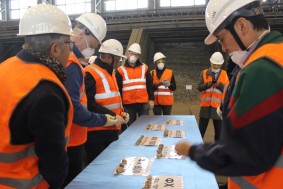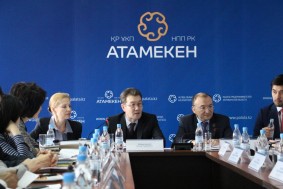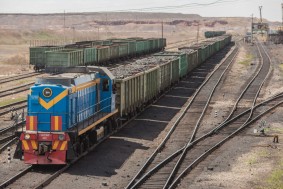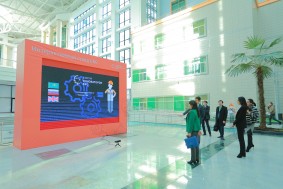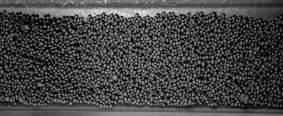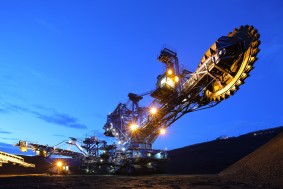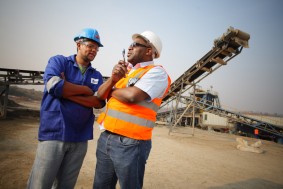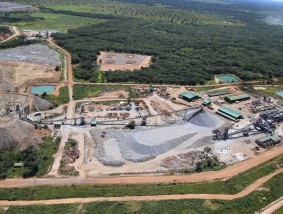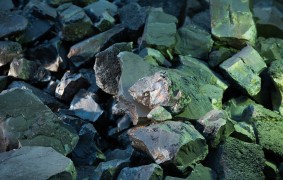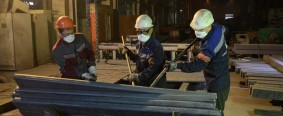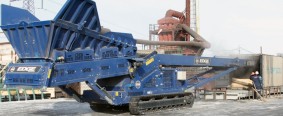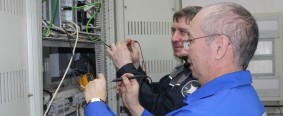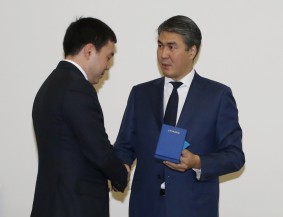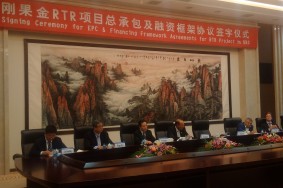Eurasian Resources Group signs agreement to complete and operate a stretch of the FIOL railway in Brazil, proceeds to create a new logistics corridor
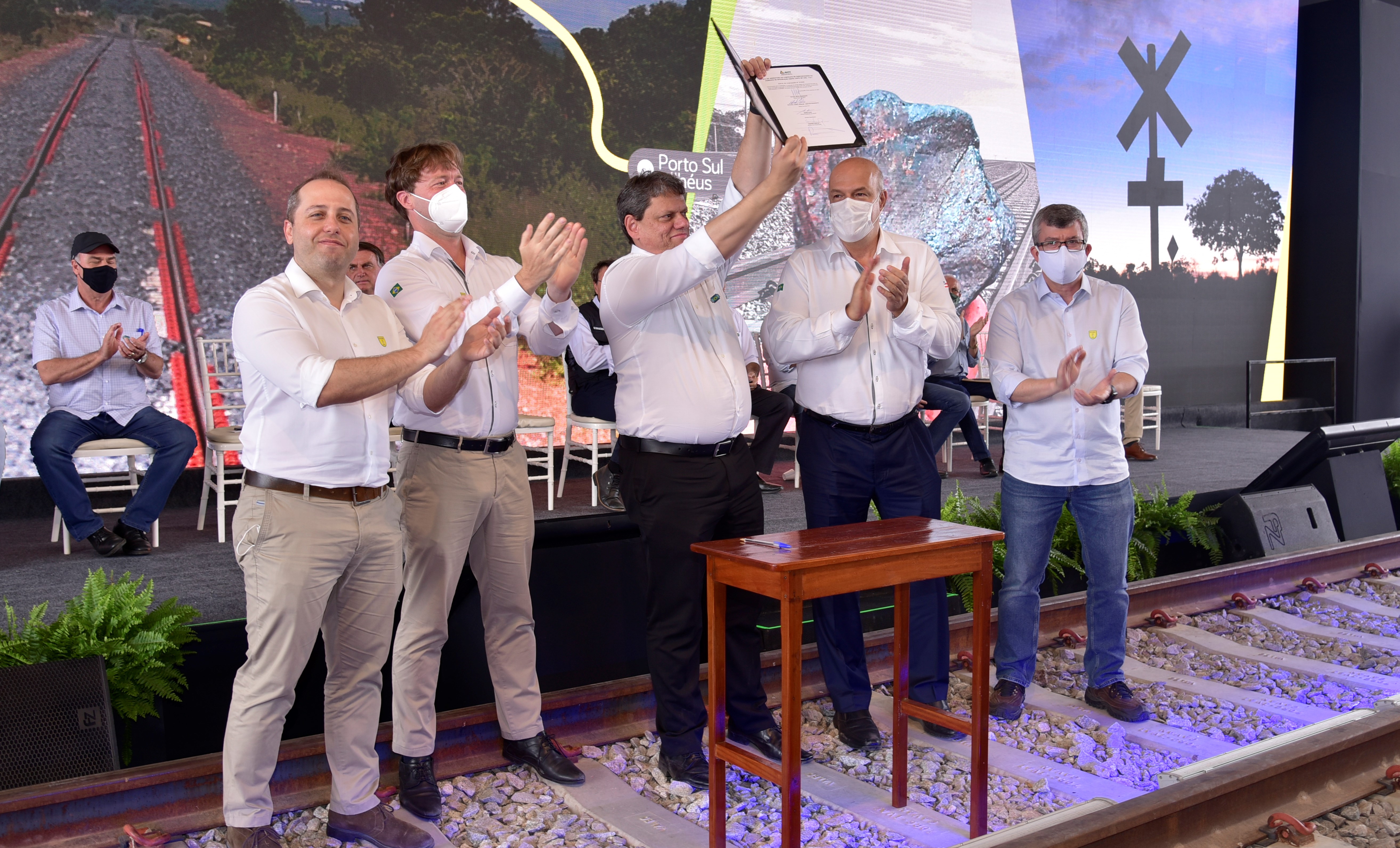
Eurasian Resources Group (“ERG” or “the Group”), a leading diversified natural resources group headquartered in Luxembourg, and its wholly-owned Brazilian subsidiary BAMIN, announced that on 3 September, 2021, BAMIN has signed a concession agreement with the Brazilian Federal Government to complete and operate a section of the FIOL (East-West Integration) railway. BAMIN will advance the construction works, which until recently were carried out by the state-owned railway engineering and construction company Valec. The sub-concession has been granted for a 35-year period, which includes an allowance of five years for the construction of the railway and 30 years for its operation. BAMIN’s investment into the railroad and the rolling stock will amount to c. 3.3 bln Brazilian reais (ca. 683 mln USD).
The signing ceremony, which was held in Sussuaran, Tangua Municipality, was attended by Brazil’s President, Jair Bolsonaro; Brazilian Infrastructure Minister, Tarcicio Gomes de Freitas; Brazilian National Land Transport Agency Director, General Rafael Vitale; Bahia State Governor, Rui Costa; President of Brazil's state-owned railway engineering and construction company Valec, André Coon, as well as other federal and local government representatives, ERG’s CEO Benedikt Sobotka and BAMIN’s CEO Eduardo Ledsham.
In April 2021, BAMIN won the auction on the B3 (São Paulo Stock Exchange) to complete and operate the first 537 km stretch of the FIOL. The concession agreement has now granted BAMIN 120 days to evaluate the progress of the construction and other related works. This preliminary phase precedes the preparation of a plan to resume the construction, which is scheduled for the second half of 2022.
Tarcio Gomes de Freitas, Minister of Infrastructure of Brazil, said: “The importance of this infrastructure project in the State of Bahia cannot be overstated. The project is very well structured and includes an iron ore plant, a railway and a seaport. The railway, which is undergoing construction, will serve the mining industry, as well as the agricultural sector, which is growing at an unprecedented pace, particularly in the West.”
BAMIN has already hired experienced professionals in the rail industry who will oversee the management of the FIOL railway. BAMIN will also leverage ERG’s international expertise as the largest transport operator in Central Asia with extensive experience in rail transportation. Each year, ERG transports over 50 million tonnes of freight using 10,000 vehicles, while also maintaining and repairing 2,500 wagons and over 1,000 locomotives.
Benedikt Sobotka, CEO of Eurasian Resources Group, said: “All across the globe, railways play a crucial role in urban development, enabling people to gain access to new opportunities. In Brazil, we are confident that FIOL will act as an important connecting point between regions, cities and people, contributing to economic growth, and creating a strong link between the west and the east of the country. The logistics and exportation corridor that BAMIN will create will transport millions of tonnes of iron ore, agricultural products, as well as other goods. Having been present in Brazil for the last sixteen years, the Group sees great potential in the country and its people and we are pleased that BAMIN will help realise this potential and create these opportunities for the local population, while creating thousands of new jobs.”
With the resumption of construction, the project is set to boost the country's economic growth at both the federal and the local level: FIOL will strengthen the rail network across 20 municipalities in Brazil, while also boosting foreign trade. BAMIN plans to install over 30 loading stations along the route, creating opportunities for regional producers, enhancing production chains, and helping establish new businesses. This will improve tax collection as well as lead to job creation and increased income. The Ministry of Infrastructure estimates that the railway will create around 55,000 direct and indirect jobs over a period of five years.
Once completed, FIOL will be able to carry 60 million tonnes of freight per year, with BAMIN’s products accounting for a third of this capacity. More than 40 million tonnes of cargo will be made available for other businesses in both the mining and agricultural sector, as well as other industries in the Bahia region.
The importance of the FIOL railway cannot be overstated, as the railway will be part of an integrated logistics project that will connect the Pedra de Ferro mine in Caetité with the Porto Sul, currently under construction in Ilhéus, Bahia. Following the commencement of commercial operations in January 2021, the Pedra de Ferro Mine is expected to produce 1 million tonnes by the end of this year. Once the South Port and FIOL are completed (expected in 2026), the mine should produce 18 million tonnes of iron ore per year.
Eduardo Ledsham, CEO of BAMIN, said: "The Pedra de Ferro mine, Porto Sul, and FIOL projects are an important milestone for the country’s economic development, and a source of pride for the Bahia State and all Brazilians. We are creating a new logistics corridor to integrate the west with the east of Brazil, creating a new, important exportation pathway. Both FIOL and Porto Sul will certainly contribute to the growth and sustainable development of the region. The state of Bahia will occupy a new and important place in the national economy, becoming the third largest iron ore producer in the country, generating wealth and prosperity, while also increasing the population's income and improving the quality of life."
Odacil Ranzi, President of Association of Farmers and Irrigators of Bahia (Associação de Agricultores e Irrigantes, or AIBA), said: “The Association of Farmers and Irrigators of Bahia welcomes the development of the FIOL railway as it will reduce transportation costs. We estimate that the FIOL railway will be able to ship over 10 million tonnes of grain annually. In addition, there is also the potential, as yet uncalculated, volume of cargo in many other areas. These areas include livestock, fisheries, wood processing, pulp processing as well as horticulture, especially given the expansion of the cocoa and banana production areas in the west of the state, while Bahia is the largest producer of bananas in the country."
Notes to Editors:
Three stretches of the FIOL railway
The FIOL railway is divided into three stretches. BAMIN won the bid to operate the first stretch, which connects the cities of Ilhéus, Uruçuca, Aureliano Leal, Ubaitaba, Gongogi, Itagibá, Itagi, Jequié, Manoel Vitorino, Mirante, Tanhaçu, Aracatu, Brumado, Livramento de Nossa Senhora, Lagoa Real, Rio do Antônio, Ibiassucê, and Caetité.
With two more stretches to be built in the future, the FIOL railwas will eventually be 1,527 km long, reaching the state of Tocantins where it can be connected to the North–South Railway. The second stretch of the railway will link Caetité to Barreiras, while the third stretch will extend to the city of Figueirópolis in the Tocantins state.
Premium grade iron ore
BAMIN's Pedra de Ferro mine produces high quality iron ore that is currently in high demand for export. The iron ore is of extremely high quality, with 65% hematite content, and is considered a premium commodity: DSO 65. Industrial processing of this raw material does not require water or consume much energy, which is advantageous in terms of sustainability.
Southern deep-water port for vessels of up to 220,000 tonnes
The Porto Sul is being constructed in Ilhéus, state of Bahia, in partnership with the Bahia government. BAMIN will export its products, whilst also using the port’s capacity for other types of cargo, such as grains, fertilisers, and other minerals. As a deep-water port, Porto Sul will be the first in the Northeast Region of Brazil to receive vessels with a capacity of up to 220,000 tonnes. Porto Sul is expected to be completed by 2026, at the same time as the FIOL railway.

